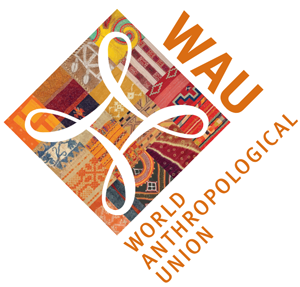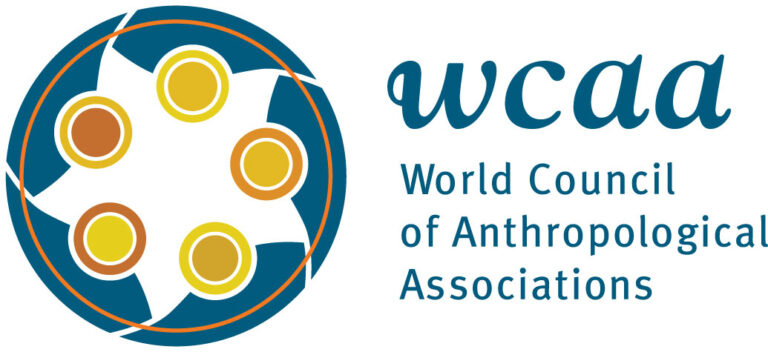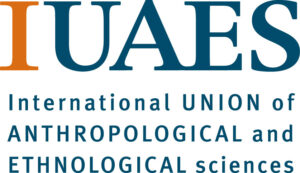Questions for Journal Editors for the Tenth Anniversary of Deja Lu
Interview with David Zeitlyn, Editor, Journal of the Anthropological Society of Oxford.
Interviewed by Joy Owen. Transcribed by Meme Mokoena and edited by Joy Owen
30 November 2021
David Zeitlyn: The journal was started in 1970 by Edwin Ardener with a team of then-current research students. It was basically an in-house journal, and the idea was to combine theory and ethnography. And it then was edited for many years by graduate students, research students. And for twenty years it was a subscription journal and the big libraries around the world paid subscriptions and that paid for the printing costs and that was it. So, like so many similar journals over the years, things got delayed, and so the publication year printed on the spine was slightly out of sync with the calendar dates. There was turn-over of research students and basically it became, well the polite term is moribund. And so, it is very interesting that this happened to the Journal of the Anthropological Society of Oxford and the Cambridge Journal of Anthropology, and the routes they have gone have diverged, which is really what I wanted to talk about. So in the end, I came along and because I knew about the internet, and I knew about open access publishing quite early, I said to them, “why don’t we scan the whole thing, all the back copies put it online only and don’t charge anything.”
Joy Owen: And I would say thank you.
DZ: The only reason for having subscription is to pay for printing. So, this was actually, I think before creative commons licenses were well developed. We don’t charge APC (article processing charges), and the licenses are entirely up to the author, they are CCBY (creative commons licenses) by default. Now, the Cambridge Journal of Anthropology went a different route, they revived themselves by going commercial with Berghahn. Although of course now, because Berghahn anthropology journals are themselves becoming open access, they are ending up in the same place we are. They went from being Cambridge’s in-house Anthropology to being published commercially via Berghahn and then they kind of ended up in the same place. And I just think that’s the curve – interesting divergence and then reconvergence.
JO: And also, probably an indication, David of your insight. You know, it might feel to you like it was luck or contingency, but it seems that at the time when it was needed you had that particular knowledge and information at hand. So, you could actually see the niche.
DZ: Yes, because I mean to be very clear both Oxford Anthropology and JASO, and Cambridge Anthropology, which when I was doing my doctorate, I had some involvement in that. These journals are intended to be second-order publications. They are the sort of place where doctoral students can get their first publication. They are peer-reviewed but it’s light-touch peer reviewing. So, the first pass is the editors, which is Bob Parken and me, Bob as a retired member of staff and me as a current member of staff.
There are doctoral students still involved, but more involved now in the book review sections. We had huge problems with continuity, which is why members of staff stepped in to keep things going. Yes, its peer-reviewed, but light touch. It was set up, I suppose, with students in mind; we do take submissions from all around the world, but in English only. We just don’t have the capacity to do translations, or to be able to review in other languages. I mean, I think we should have abstracts in more languages myself. That is a way of addressing language hegemony issues. But there are a whole lot of issues about what ‘open’ means.
JO: You mentioned continuity and if you are thinking about the journal in the next five, ten, fifteen years, do you think absolutely there has to be someone from the department who is taking it forward? Can it be passed on?
DZ: Yeah, it’s a good question. Do you have an institution that shelters you? Yes, the journal sits on the departmental website. So, all the web access, the publishing in that sense is parasitic on the department. We have absolutely zero budget. So, there are no salaries because we have nothing to pay with. Also, this is one of my grumbles, we don’t have DOIs, you know DOIs, Digital Object identifiers?
JO: Yes. Why?
DZ: Because you have to pay to get a DOI. I actually have an on-going discussion with the university about whether they couldn’t centrally provide them.
JO: A DOI, I mean come on!
DZ: Yeah, I have been saying this in the university for ten years now. It’s a very Oxford thing about no one feeling responsible. I have talked to institutions, like CrossRef who generate DOIs, that say you have to pay a membership fee, and again the department can’t pay that, but the university could. I mean it might well happen, but at the moment there is no way of having a DOI. I had nightmares with bureaucracy in the past three months and I am just going to avoid that.
JO: I can sense your frustration, especially if you are thinking about the longevity of the journal. But also, for me when I think about it, David, there is not sufficient space for doctoral students to gather and to publish. The journal to me is a space that we all could actually be using, and that also builds the reputation of the institution.
DZ: One thing also we have done with great success over the last couple of years is to have special issues. There was a language anthropology conference and the papers from that went into special issues. One of the doctoral students became a guest editor. So that’s very good for her CV. Then actually this year, one of my colleagues organized a response to COVID. She was able to do that really fast.
JO: Something that we are also wrestling with in South Africa, in terms of the Southern Africa Journal, is do we continue with print copies, or do we push for online only? We are with Taylor & Francis. Yes, I love paper, but many more people want quicker access. So, to you, what was that transition like, to go from the print copy to online?
DZ: Well, it was liberating. It solved the problem of the hiatus of not being able to keep up, we just drew a line and re-started. We have kept pdfs with page numbers to make it easier for people to get proper references. We registered with DOAJ, the Directory of Open Access Journals. Through them, there is an initiative to make back-up copies. So, the archiving side is being addressed as well, which is one of the things the paper copies address; by sending paper copies around the world, you have some security. I have published something in an online journal from the University of Durham in north England, the Durham Anthropology Journal. I did that with a colleague from Durham. And then the Durham website changed and it’s gone. There are no copies online anymore, I can’t now remember whether it was picked up by the internet archive, but it was a real shock to me. And their anthropology department, I raised it with them, and they said it was done to them. It was about central university IT systems changing. It’s quite scary. It’s very important, you know, to have proper back-up systems and archives. But, going back to your question, I think access issues are more important than the longevity of paper, because I think archiving can be addressed. And so, Oxford is doing the local archive of the university website so that there are multiple copies. But it is incredibly important, if you are publishing online only, to make sure you’re registered with people like DOAJ, both in terms of dissemination but also because of the archiving.
JO: What of the editorial processes at JASO? What is that process like?
DZ: Well again, moving to online only has freed things up. When it was on paper there were four issues a year. Part of the reason they all got slowed down was that there weren’t enough good articles coming in. So, now we say, well we will have at least one issue a year. And if we get enough articles, we will have more than one. And if someone comes with a special issue, then, good, we’ve got a special issue. But we have the flexibility to respond to demand and we no longer have page limits. The thing that I am surprised at is that in our guidance for authors we say we are open to multimedia submissions, but we’ve had virtually none. I think we’ve had one photo essay. I was expecting we would have more.
JO: Yeah, especially when you think about this kind of generation.
DZ: Yeah, I mean they go somewhere else, I guess.
JO: We should actually check, you know. Because I think you’re actually raising an important point here, David. I am kind of mid-career, but I am also aware of where our students are. And there is something that seems to be lost. So, in undergraduate education we are encouraging them to be expressive and creative, and then when they come into the Honours year it feels as if we are stamping them in a particular way, and some of that creativity goes out the window. So that by the time they come to Masters and PhD, it’s as if they have all converged into one stream. And I don’t know how to push that apart, unless we continue to offer the opportunity to present multimedia. We can’t really say that this is only the parameters of visual anthropology, because we know when we do fieldwork we’re taking photographs, you know we are creating a particular visual story.
DZ: Or film. Film is fieldnotes.
JO: Yes, you know. So why? Why aren’t we seeing more? So, maybe that’s also something that we need to take on, you know, as a discussion point in our broader organizations as well.
JO: What topics define the journal? So, we know that broadly anyone can write in a particular kind of special issue. If they have an idea, they can send you something. But is there something that you think the journal is known for?
DZ: I don’t know. It’s not only ethnography. It’s not only theory. We do publish some articles which are very theoretical. We do publish some articles which are very ethnographic and empirical. What we are aiming at is the two in dialogue. Now I am conscious as I say that that sounds exactly like the journal HAU’s selling point of theory and ethnography in dialogue. But of course, isn’t that anthropology?
JO: If I am thinking of suggesting to one of my PhDs, “consider writing an article around your work and sending it to David,” what would you look for? You are talking about that dance between theory and ethnography, but is there something more specific?
DZ: Not really. It’s a very delicate balance. It does have to be well written. You know the editing is basically by volunteers. We haven’t got the time to do too much work on basic grammar. And there has to be an argument, and that’s where it’s different from just saying, “here is a strange phenomenon.” Why should someone else be interested in this particular strange phenomenon? And that’s where the dance with theory comes in. But it’s quite hard to summarize what makes something that we take seriously, because we do reject things. And the sorts of things that get rejected are on the level of language, but more particularly that there doesn’t seem to be an engagement with wider anthropology. It just feels like folklore. I don’t want to be too discouraging about folklore, but if you send me simply a description of a particular practice, that isn’t quite enough anymore.
JO: And I think that’s what we are doing with our PhD students, it’s to push them to that point: they’ve got to start thinking of themselves as scholars. And how do they do that? In conversation with other scholars, you know. Because often you don’t see that, you don’t see students thinking with the material.
JO: And David, that touches on one of my other questions, the sense that the institution is not really taking ownership of the journal and that it sits within the department. When you think of your younger colleagues, are they stepping up as well? Are they showing you that “look, we will take this on at some point”?
DZ: That is a very good question. I would like to think so. I am fairly confident that people will step up, but you are right, I should ask now.
JO: It’s often said that there is an Anglo-American hegemony in terms of theories that need to be cited; do you find that to be the case?
DZ: No, in terms of theorization, I think there is as much of a hegemony from France. Derrida. Foucault. Latour. Descola. You know if you want to be trendy you cite the French, don’t you? But I would say yes, we encourage local theorization, but we are not doctrinaire, we don’t buy into a particular school of theory. I would like to think that is Oxford’s anthropological position, or perhaps it’s just me.
JO: Because I find it intriguing, David I am sure you have seen the discussion around this; it’s been ongoing. I for one, when I am teaching my students, I say to them, “this discipline has a history. You cannot ignore it. If you ignore it, you can’t strengthen it, you can’t take it on as your own. If you understand the good, the bad and the ugly of the discipline you can find a way to locate yourself.” I think it can be used as a decolonizing tool, but so many other people would say, “yes, but it’s history.” And if we pay attention to Audre Lorde, “you can’t use the master’s tools to decolonize oneself.”
DZ: Yeah. It seems to me the decolonizing agenda is so wide, and anthropology is a very easy target but ultimately not a very important one. I mean, the people you should be arguing with are economists or political science. You know, part of the reason the colonial officers tolerated anthropologists, was how irrelevant they were. In Nigeria very early in the twentieth century there were government anthropologists employed by the colony of Nigeria. And their contracts weren’t renewed because the colonial state saw no benefit. Now we read that stuff as incredible historical material. But really, the anthropologists were an experiment that colonial authorities toyed with. And anthropologists sold themselves. So, the Oxford and Cambridge anthropology departments ran training courses. So, sure, we are completely complicit. But it is obvious that we are complicit; there are far more insidious but more important complicities in these other disciplines. And okay, so we stressed in the colonial offices the importance of learning other languages. But the most important driver for that, again talking about Nigeria, is if you wanted to get promoted from assistant district officer to district officer in north Nigeria, you would have to pass an exam in Hausa, and you didn’t need training from Oxford or Cambridge to see the relevance. It was made relevant by the career structure.
JO: Yes, so now I want to flip that question: we are pushing these students through the program and are hoping that at the other end there is a job, because even if we don’t like it, we are in a capitalist system. So we want to argue that there is a relevance in the degree, in the critical skills, in the analysis, you know, in what we can offer.
DZ: Well, it’s been done for us because lots of businesses, management consultants, all sorts of people, have found the term ethnography and say that is what they are doing, in which case it gives jobs to our students. What I think anthropology has to offer actually comes out of that tradition. It’s the extended case method, which was developed by my colleagues in Manchester and in South Africa. And using extended case studies as ways of gathering and comprehending the wide range of different factors that intersect in social action; remains for me the core of what Anthropology is all about. And we try and capture at least some of that in JASO.
DZ: The biggest problems I face as journal editor are succession. And we would like more submissions. Really, when job panels are looking at applications, they don’t care whether a publication is in American Anthropologist or not; the issue is whether the applicant has any publications.



